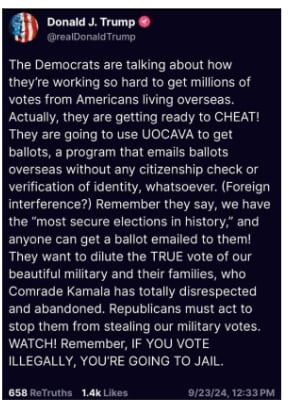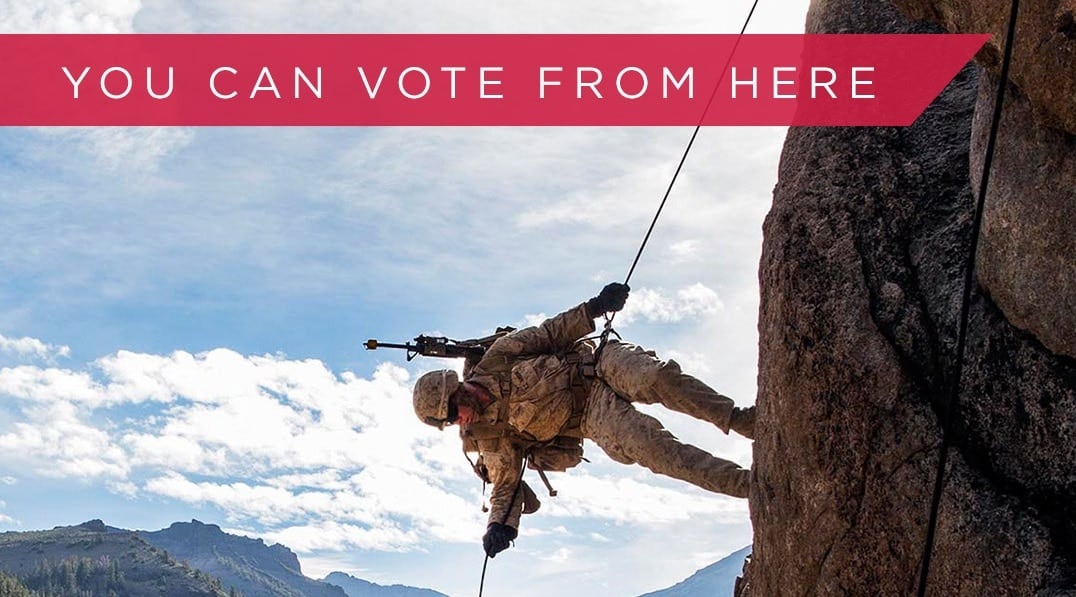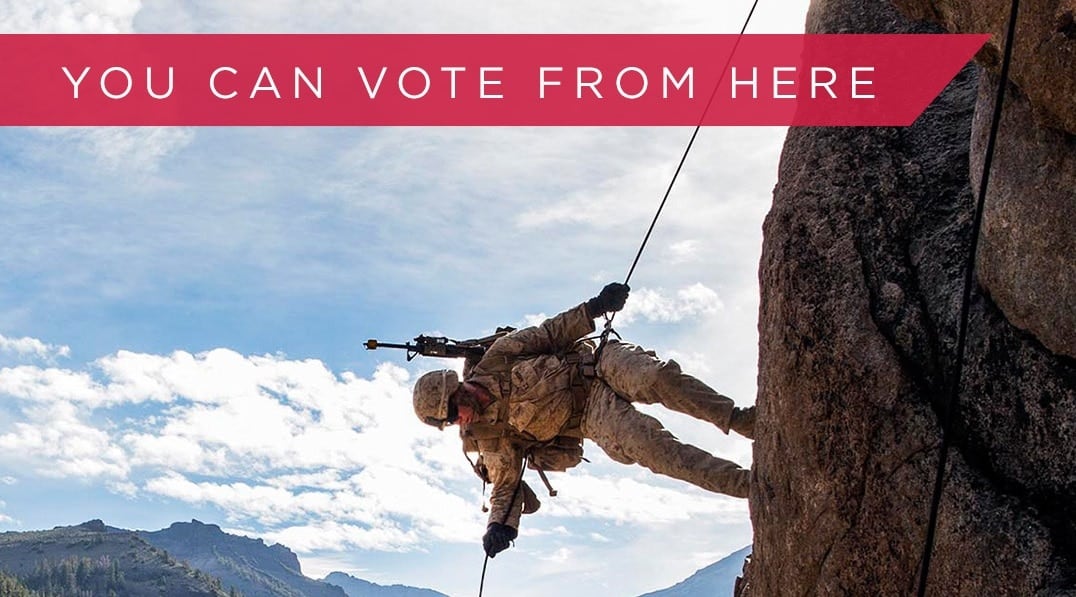Former President Donald Trump claimed on social media last week that a law designed to ensure that service members and overseas Americans can vote via absentee ballot will be used by Democrats to “cheat” in next month’s presidential election, but experts knowledgeable about the process say that would be very difficult, if not impossible, given the nature of the system.
Trump’s allegations involve the Uniformed and Overseas Citizens Absentee Voting Act, or UOCAVA, a law protecting the rights of such groups to vote in federal elections.
The Republican presidential nominee wrote on his Truth Social platform last week that Democrats are working to get millions of votes from overseas voters.
“Actually they are getting ready to CHEAT!” Trump wrote. “They are going to use UOCAVA to get ballots, a program that emails ballots overseas without any citizenship check or verification of identity whatsoever.”
Trump further alleged that Democrats “want to dilute the TRUE vote of our beautiful military and their families.”

Trump’s post comes amid Republican concerns that absentee voting allows the potential for greater voter fraud, and for ballots to be cast by noncitizens. Some critics have also questioned the verification process for absentee ballots.
No evidence has arisen of any widespread voter fraud in the 2020 election, and some analysts warn that raising concerns about such systems without evidence decreases Americans’ trust in their elections.
When it comes to UOCAVA voters, experts say it would be practically impossible to alter the vote tally in any meaningful way.
While UOCAVA ensures the rights of overseas and military voters to cast their ballots, voter eligibility is determined by thousands of local election officials across the country who handle UOCAVA voter ballot requests and ballots separately.
A soldier with a home of record in Hennepin County, Minnesota, for example, must contact the Hennepin County election office to register and request a ballot. A sailor with a home of record in Cobb County, Georgia, must contact the Cobb County election officer to register and request a ballot.
As such, experts in the field say, any unified effort to steal or inflate the UOCAVA vote would be essentially impossible, given all the election offices involved.
“We’re talking about ballots that go through 7,500 jurisdictions, where election officials can pinpoint erratic patterns,” Susan Dzieduszycka-Suinat, president and CEO of the nonpartisan U.S. Vote Foundation, told Military Times. “To be a fraudulent UOCAVA voter, you’d have to come up with an identity of someone who lives in a certain place at a certain time, and had an address and their identification.”
RELATED

The system for overseas and military absentee voting is so diffuse that any large-scale fraud couldn’t conceivably happen, she said.
Dzieduszycka-Suinat has worked in the field of overseas voting for years, and said she had never heard of a case where a UOCAVA voter who didn’t have identification was allowed to vote.
Trump’s campaign did not respond to a request for comment this week regarding the Truth Social post.
Dzieduszycka-Suinat said there may be more attention on overseas voters this cycle because of the role UOCAVA ballots played in the close races in Arizona and Georgia in 2020.
On the same day that Trump posted about UOCAVA ballots, the Democratic Party arm for American expats noted that “votes from abroad ensured that both Arizona and Georgia went for Biden-Harris.”

Trump’s post is accurate in noting that Democrats have announced efforts to get out the overseas vote, saying there are 9 million eligible American citizen voters, far higher than government estimates of 2.9 million.
While there has been a significant rise in overseas citizen ballot requests for this election, Bob Carey, a retired Navy captain and former director of the government’s Federal Voting Assistance Program, or FVAP, said Democrats’ estimate of 9 million overseas voters is “unrealistically high.”
Carey, who has also worked on several Republican campaigns, said such an estimate makes it “understandable why people would be concerned.”
“But I still don’t think there will be widespread voting by noncitizens using UOCAVA,” he said.
Each local election jurisdiction has different requirements regarding what they will accept to determine an overseas or military voter’s eligibility and legitimacy.
“I think that election officials are exceedingly careful about who they approve when they come with the Federal Post Card Application, and they don’t give the voters an easy time,” Dzieduszycka-Suinat said. “They want to be sure it can stand up to scrutiny.”
“We’ve had situations lately where UOCAVA voters who didn’t have the requested ID are being turned down,” she added, pointing to three would-be UOCAVA Ohio voters and one Oregon voter who have recently been turned down because they didn’t have the requested ID, and Dzieduszycka-Suinat suspects there are probably more.
Amid the partisan rancor of American election season, Dzieduszycka-Suinat said she prefers to view Trump’s post as an indicator that the overseas vote is increasingly relevant to those back home.
“Maybe this informs people that they do have the right to vote and it’s all hogwash,” Dzieduszycka-Suinat said. “I can only assume the power of the overseas vote is growing. Why else would a candidate care?”
Deputy editor Leo Shane III contributed to this report
Karen has covered military families, quality of life and consumer issues for Military Times for more than 30 years, and is co-author of a chapter on media coverage of military families in the book "A Battle Plan for Supporting Military Families." She previously worked for newspapers in Guam, Norfolk, Jacksonville, Fla., and Athens, Ga.



